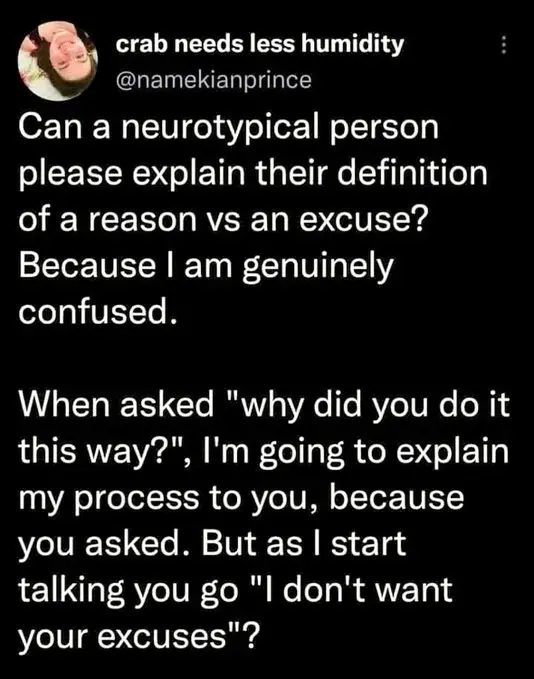An excuse removes responsibility.
A reason does not.
"You are excused" means you no longer are responsible for the outcome.
"I literally wasn't present when it happened, so I'm not responsible for the outcome" < excuse, which can be valid
"I knew what was going to happen, here is why I did it for a good reason" < reason
Example: three kids are present, 2 are graffiti'ing the back of a house
When caught, 1 kid says "I was trying to stop them, they wouldn't listen". This is an excuse, they're claiming they aren't at fault and not responsible for the graffiti.
Another says "the home owner deserved it, he's an asshole", this is a reason as they are clearly not avoiding responsibility.
When you try and use an excuse to get out of something thar you clearly are responsible for, that's when you will get served the "I dont want an excuse" line.
